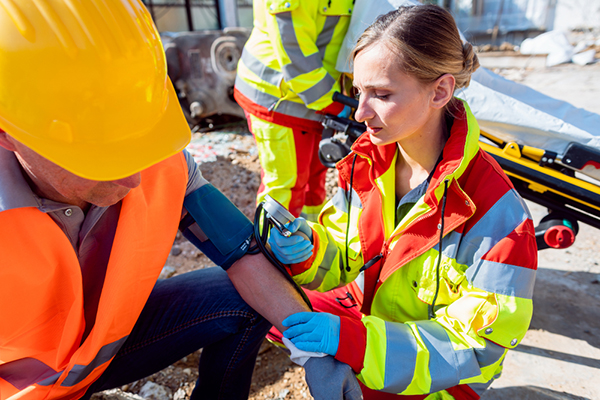Roofing Liability Insurance, Umbrella Policies and More Insurance Advice for Roofers
Author: Linda Light | January 4, 2024
Roofers are exposed to dangerous working conditions, where accidents happen and property damage may occur on a client's site. Natural disasters and fire may destroy tools and other equipment. All of these potential hazards means that insurance is an essential part of any roofing contractor's business.
Roofing liability insurance is just one option that offers protection for you and your business. Learn the different insurance types to help you build an insurance portfolio specific to your business's needs.

Insurance for Your Roofing Business
The specific coverage you'll need depends on the nature of your roofing business, whether you hire staff or subcontractors and whether you work year-round. You will probably need a combination of policies. The best first step is to check your state's requirements for contractors' insurance.
General Liability Protects Your Business From Unexpected Claims
General liability insurance is a contractor's basic coverage. It protects you from claims concerning a wide range of injuries, bills and property damage. It's the most common and comprehensive type of insurance policy, covering personal injury to customers and other non-employees. Some states may require you to carry this type of insurance. For example, a commercial roofer in Rhode Island has to provide proof of liability insurance to register and become licensed as a contractor with the state.
Workers Compensation Protects Your Employees
When workers get hurt on the job or develop a work-related illness, your company can be held responsible. A workers' compensation plan helps you prepare for unexpected accidents and protect your business at the same time. The main thing to remember is that workers comp covers the people who work for you, whereas a general liability is for non-employees.
In most states, every business must have some form of workers' compensation. However, the laws vary, so make sure you know what is required in your state or province.
Commercial Property and Auto Insurance Protect Your Property
You've acquired the tools, equipment and supplies to run your roofing business. Now, you might want to invest in a commercial property insurance policy that will cover the cost of repairing or replacing these items in the event of a fire, theft or natural disasters such as a tornado or hurricane.
Commercial auto insurance protects the cars, trucks, vans and specialized trucks and trailers that you use in your roofing business. Your personal auto insurance typically won't cover work-related accidents. If your business uses trucks or other vehicles to move equipment or employees from jobsite to jobsite, you should carry commercial auto insurance.
An Umbrella Policy Protects Your Livelihood
A commercial umbrella insurance policy is an addition to your general liability insurance. Should an accident exhaust the limits of your primary general liability coverage, this type of policy protects you from paying out-of-pocket for any legal fees or damages that exceed that policy.
More Roofing Liability Insurance for Your Business Needs
As a roofer, you may want to consider the following types of insurance:
- Professional and/or Product Liability: This insurance may be appropriate if you offer a consultation service to your customers where you advise and recommend specific products or treatments, or sell products in your work. It's designed to protect you from legal claims should your advice, recommendations or products result in a customer injury or other loss.
- Inland Marine Installation Coverage: Don't let the name fool you — inland marine insurance simply covers materials in transit on land. Typically, commercial property insurance doesn't cover materials once they have left your premises. That means any materials damaged on a truck, at a client's location or at a temporary location (until the project is installed and accepted) are not covered. To cover these costs, contractors may want to add an installation floater.
- Tools and Equipment (or Mobile Equipment) Floater: This covers any damage or loss of any leased or owned specialized tools and equipment when moved from place to place. Standard property insurance covers equipment that typically stays in one place, whereas this floater covers mobile equipment.
Take time to understand the different types of roofing liability insurance by sitting down and talking with your insurance agent to build a portfolio specific to your company's needs. It's possible that not having insurance can actually cost you business: Clients may not hire you without it. Insurance is an essential part of protecting the well-being of your employees and the health of your roofing business.